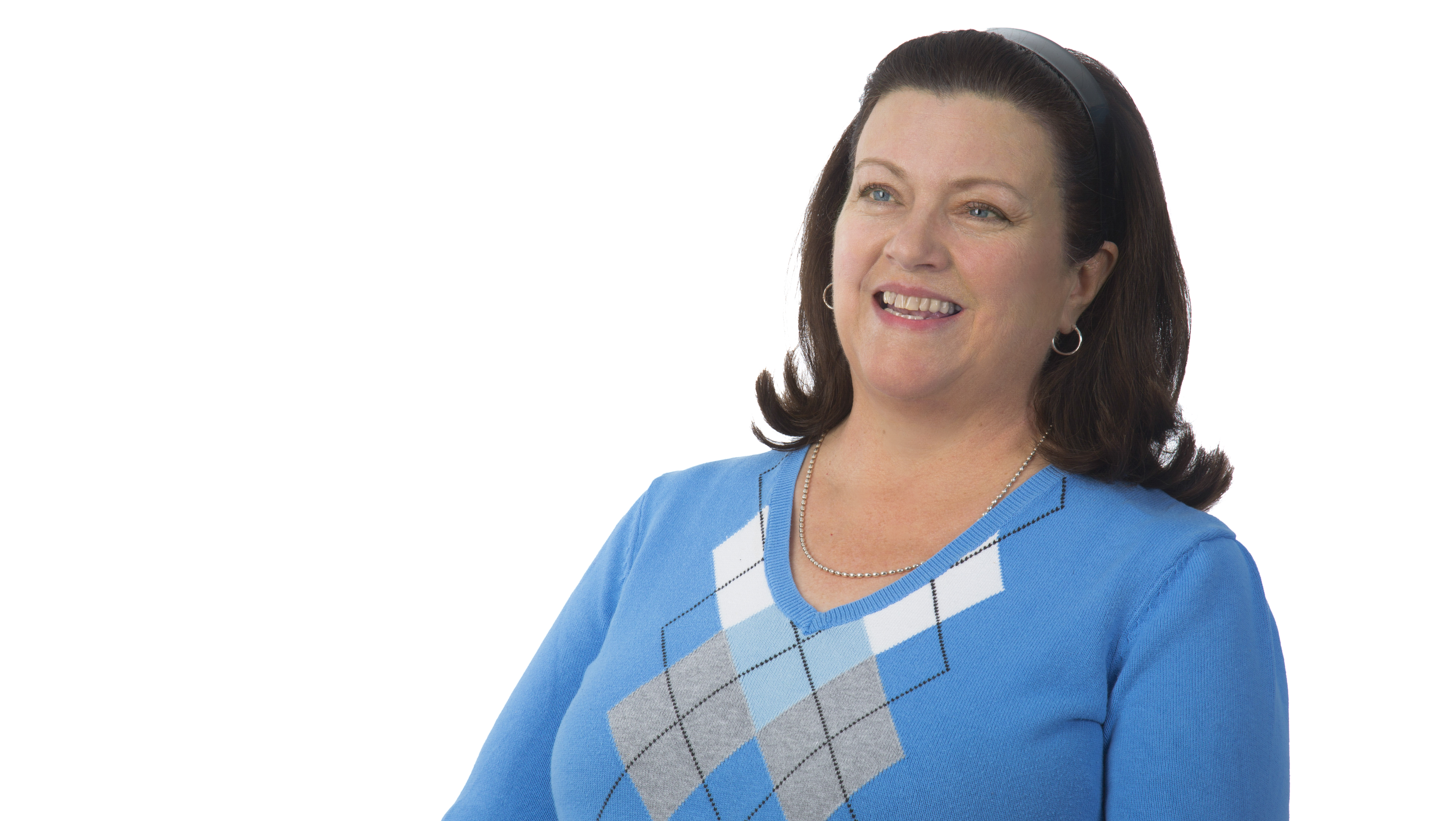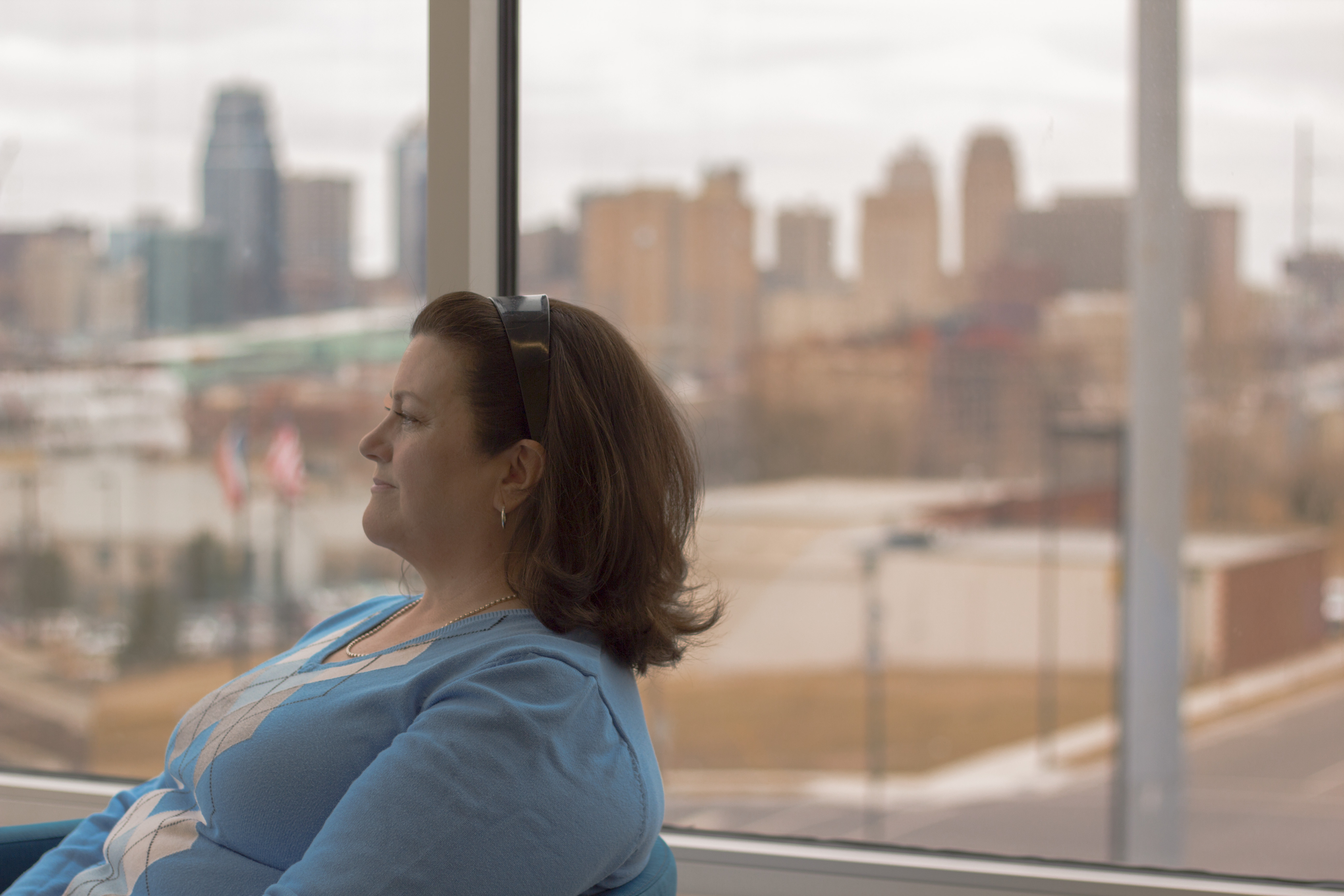Licia Clifton-James
Licia Clifton-James is the ‘Lady Married to the Mayor’
Interdisciplinary Ph.D. in Art History and the Humanities Consortium
Graduation Year: 2016

You’re a “triple-crown” contender at UMKC: you received your undergraduate and master’s degrees here, and now you’re pursuing your PhD. What led you to UMKC?
My husband (Kansas City Mayor Sly James) and I were both born and raised in Kansas City, and I knew it had to be a university in Kansas City.
UMKC offered an Interdisciplinary PhD; I combined Art History and the Humanities Consortium. My focus is African and African American art, and Dr. Maude Southwell Wahlman, UMKC’s expert on African and African American art, has served as a great mentor.
What got you interested in art and art history?
My husband and I decided years ago to collect masks from around the world. We ended up collecting mostly African masks. As an undergraduate, I took Dr. Wahlman’s course on Art of the African Diaspora, and Meso and Native American Art. Realizing I had some of the masks on which she lectured, I was determined to explore every aspect of our collection. To this day, I still have not completed my research on our collection. That completion will come after I complete my IPhD.
“I want to be a professor – at UMKC if possible. Additionally, I see myself producing a series of books regarding non-western art history.”
Where is UMKC taking you?
In May, it took me to Senegal. Within Senegal, I traveled to Dakar, Saint-Louis, Touba and Kaolack, researching Islamic and indigenous scripts, protective charms and Sufism. Interestingly, the tour I was scheduled with changed and I had a private driver and tour guide the entire time. The trip was very beneficial to my dissertation.
Every person I met in Senegal wanted to know how I liked their country. I was amazed at how friendly and genuinely excited they were for me to like their country. Many people went out of their way to provide me with the information and experiences I needed for my research. The most excitement came for me two days before I was to leave and I met Waly Faye, programs coordinator from the West African Research Center. Waly gave me a critical piece of information for the completion of my dissertation. I will be forever indebted to him.
What’s your favorite aspect of being the First Lady of Kansas City?
After Adele Hall’s passing, she was referred to as the First Lady of Kansas City. I agree with that thought. Let’s just call me the lady married to the Mayor. I am very appreciative of the contacts I have made within the various ethnic communities in Kansas City. There is nothing I like better than to have lunch with Alicia Kerber Palma, Consul General of the Mexican Consulate, and catch up with the inter-workings of the Hispanic community, or to lunch with Kimberly Randolph and catch up with what is going on at the Bruce R. Watkins Cultural Heritage Center and discover a way I can help. Kansas City is blessed with wonderful ethnic groups and each has their own special way of connecting with the arts. I love being involved with and experiencing those connections.
What’s the best piece of advice you have ever received from a professor?
“Licia, you know the information . . . just go ahead and do it.” My professor was more confident in my abilities than I was. Therefore, I did go ahead and am on the verge of completing my doctorate.
Who do you admire most at UMKC?
Dr. Maude Southwell Wahlman, in the Art History Department, is one of the people at UMKC I truly admire. She has spurred me on in my studies and directed me down paths I normally would not have taken. Through her tutelage, I have experienced new areas within my education that I would never have thought to consider.
Are you a first-generation college student?
Yes. I hadn’t given it much thought until I became determined to get my doctorate while my mother was still alive. She has been a guiding force in my life and I feel I owe my education not only to myself, but to her as well.
What is one word that best describes you?
Tenacious is the word that presently best describes me. In my early college endeavors, I was timid and shy, questioning my every move. Today, I have made a decision regarding my education and the education of others, and I will stick firmly to this goal, no matter what obstacles I encounter, until that goal is met.

What are your lifelong goals?
I want to be a professor – at UMKC if possible. Additionally, I see myself producing a series of books regarding non-western art history. I decided to get my PhD because my kids were headed to college, and I wanted to influence their decisions to complete their own schooling. And, of course, I’ve always wanted to be called “Doctor.”
Tell us about your children.
We had four kids, and the oldest has passed away. The other three are in law, music and marketing. I wanted to encourage them to do what they wanted – not what we wanted them to do.
What is your motto?
My motto is to be myself. I won’t fake it. I believe you should go with your own game plan.
What excites you?
I get excited when I find new research or get an opportunity to explore new places and cultures. I was beyond excited in Senegal.
What’s your greatest fear?
In the past, it was failure. Now it is never giving myself the chance to succeed.
What have you learned from college?
In my earlier college years, I thought it was important to make straight As. I was too nervous and did not cut myself any slack. Given that situation, I withdrew from some classes I should have pushed through and found beneficial. I found myself a few years ago enjoying my studies so much that when I saw another student struggling and contemplating withdrawal, I encouraged against that thought. I have definitely personally grown. I have now learned to relax and take in the knowledge. My parents encouraged me to become an M.D. I realized that was not for me, but something else was – Art History. However, I will be a lifelong student and I think others should be as well.

